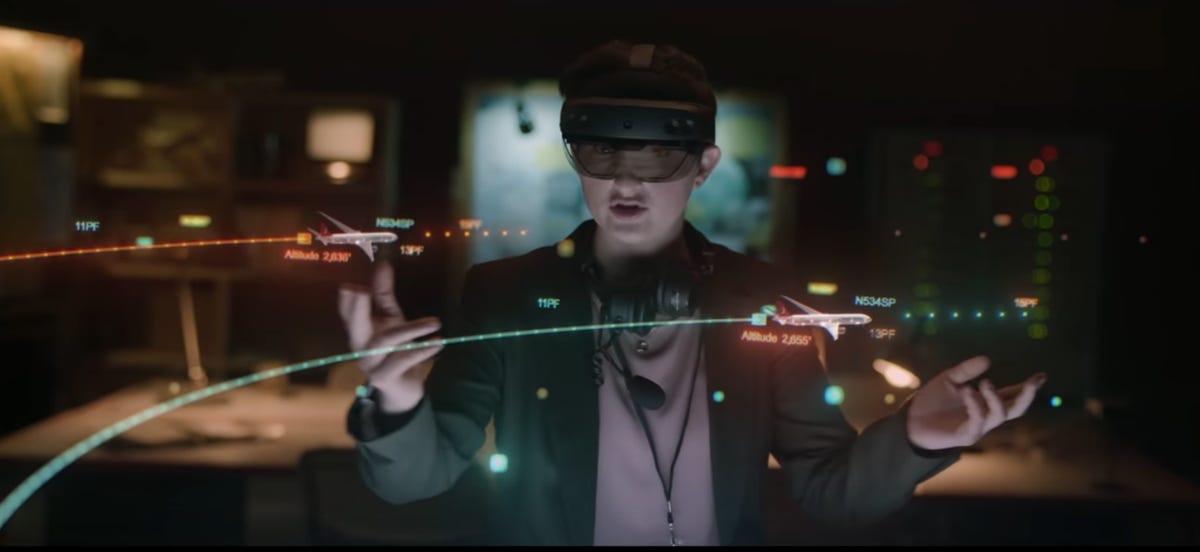
So these planes are full of people going on vacation…
Screenshot by ZDNetIt’s often easy to deduce when Microsoft is excited about something.
CEO Satya Nadella says, in a somewhat excited tone, that he’s excited about something.
So my ears involuntarily tingled when Nadella spoke last week at the Stanford Institute for Economic Policy Research’s Economic Summit.
Asked what most excited him, he didn’t mention India embarrassing England at cricket (which was surely the most accurate answer).
Instead, he talked about his own keynote at Microsoft’s Ignite event, which also took place last week.
He said attendees were invited to join his sermon using any VR goggles. This, to him, was an example of creating the most natural user interface via technology.
“The most natural user interface would be where screens are not even mediating the interaction,” he said.
He then added: “In yesterday’s keynote, I could join and be in an immersive space, in that case as an avatar or as a hologram.”
This is all, you see, about transcendence.
[embedded content]
“Once you have presence, you transcend everything. Two people are able to transcend space, be together, can naturally interact with each other and collaborate,” he dreamed.
Crucially, he said, this enables such fundamentally human forms of connection, like eye contact and hand gestures.
Helpfully, Microsoft presented a little movie to show what this so-called Mesh — the ultimate exposition of Teams — would look like.
You’re having a meeting and instead of someone sitting in their bedroom — or, indeed, someone else’s — waving at you and pretending to be interested, that person floats into your space, looks you in the eye, and tries to sell you some real estate. Or security software.
[embedded content]
In its video, Microsoft calls this “a world without boundaries.”
Which might excite those constrained by so many boundaries of late. But not, perhaps, airline executives. Airlines have depended so much on business travel for profits.
They (claim to) firmly believe that things will rebound in the not-too-distant future. The CEOs of both United and American believe the likes of Zoom — or Teams — simply can’t substitute for a real-life interaction.
They have to, of course.
Yet here’s Microsoft insisting something quite lifelike can ultimately happen.
The operative word is, of course, ultimately. There are one or two obstacles. Making the Meshy technology sufficiently robust and ubiquitous, for example. Making people want to wear Hololens glasses, for example. Making the technology even vaguely affordable, too.
Still, if you one day have a choice between a long flight in an increasingly cramped economy class seat and an instant donning of weird goggles to make your client magically appear right next to you, option B might not be the worst. (Your family and loved ones might prefer it too. Might.)
The pandemic has dragged us into a narrower space where we see far more of business from a distance, through technology. It’s become a certain sort of normal.
It’s almost as if we’re being softened up, more quickly than tech companies would have imagined, for the new imaginary world of business.
We’ve been persuaded that so many things we thought were necessary may not be. We’ve done serious business with people we’ve never met in real life.
Wouldn’t it be fascinating if planes were now solely used for pleasure? Perhaps that would force airlines to make them more pleasurable again.



